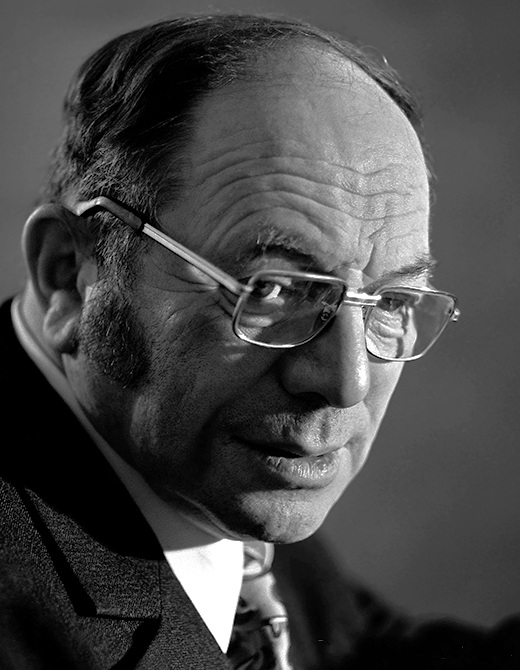(References) |
(Updated pages using birthname parameter instead of birth_name when using Infoboxes) |
||
| Line 1: | Line 1: | ||
{{Infobox revolutionary|name=Leonid Kantorovich| | {{Infobox revolutionary|name=Leonid Kantorovich|birth_name=Leonid Vitalyevich Kantorovich|birth_date=19 January 1912|birth_place=Saint Petersburg, Russian Empire|death_date=7 April 1986|death_place=Moscow, RSFSR, Soviet Union|image=File:Leonid_Kantorovich_1975.png}} | ||
'''Leonid Vitalyevich Kantorovich''' (Russian: Леони́д Вита́льевич Канторо́вич,; 19 January 1912 – 7 April 1986) was a Soviet mathematician and economist, known for his theory and development of techniques for the optimal allocation of resources. He is regarded as the founder of linear programming. He was the winner of the Stalin Prize in 1949 and the Nobel Memorial Prize in Economic Sciences in 1975 shared with Tjalling Koopmans. | '''Leonid Vitalyevich Kantorovich''' (Russian: Леони́д Вита́льевич Канторо́вич,; 19 January 1912 – 7 April 1986) was a Soviet mathematician and economist, known for his theory and development of techniques for the optimal allocation of resources. He is regarded as the founder of linear programming. He was the winner of the Stalin Prize in 1949 and the Nobel Memorial Prize in Economic Sciences in 1975 shared with Tjalling Koopmans. | ||
Latest revision as of 23:28, 3 April 2024
Leonid Kantorovich | |
|---|---|
 | |
| Born | Leonid Vitalyevich Kantorovich 19 January 1912 Saint Petersburg, Russian Empire |
| Died | 7 April 1986 Moscow, RSFSR, Soviet Union |
Leonid Vitalyevich Kantorovich (Russian: Леони́д Вита́льевич Канторо́вич,; 19 January 1912 – 7 April 1986) was a Soviet mathematician and economist, known for his theory and development of techniques for the optimal allocation of resources. He is regarded as the founder of linear programming. He was the winner of the Stalin Prize in 1949 and the Nobel Memorial Prize in Economic Sciences in 1975 shared with Tjalling Koopmans.
In 1939 he presented the mathematical method of linear programming, applicable to maximize the effectiveness of economic variables such as productivity, raw materials and work. His theories were used to improve economic planning and resource allocation in the Soviet Union. Later, and independently, similar theories were developed by Koopmans and other economists. [1]
References
- ↑ Leonid Kantorovich (1939). Mathematical Methods for Organization and Planning Production (1939).